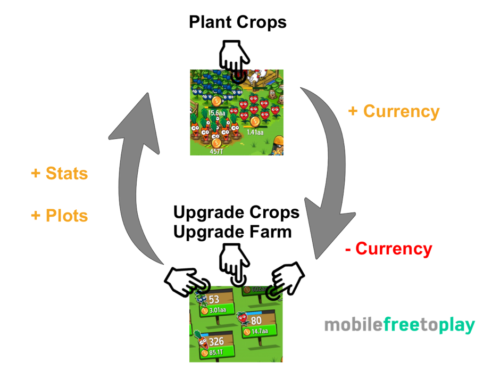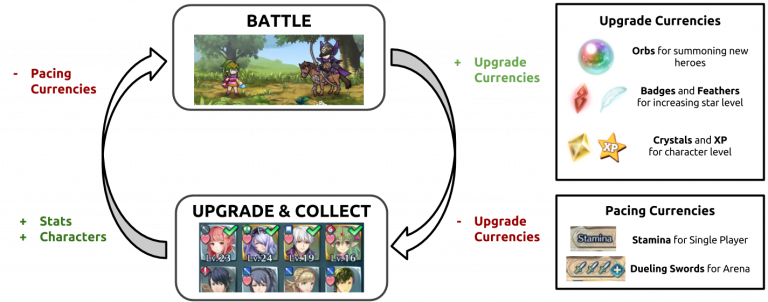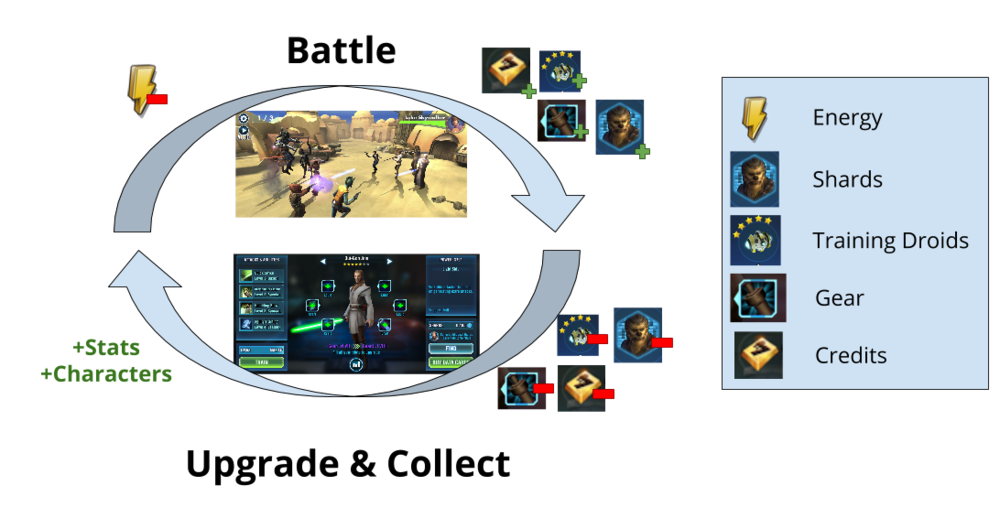"Deconstructing games is selfless work": Adam Telfer on how to write parses
How is work being done on decontracts of fritupley projects, – said Adam Telfer, founder of the blog mobilefreetoplay.com and the former product is the Wooga lead.
Alexander Semenov, Senior Editor App2Top.ru Q: How do you decide that a particular game is worth parsing?

Adam Telfer
Adam Telfer, founder of the blog mobilefreetoplay.com: The easiest way is to sort out those games that I played with pleasure. It was fun to disassemble, for example, King of Thieves, Fire Emblem Heroes and Smash Land.
I analyze not only games that I personally like, but also those projects in which there are new interesting mechanics or systems, a fresh approach to session design (as in King of Thieves, where keys are used instead of energy) or non—standard ways of monetization (like the lack of timers in Fallout Shelter). I like to study unusually arranged mechanics and try to understand why a game designer decided to go this way, to look for what pros and cons there are in each mechanic.
By the way, how much do you play new games? Do you download everything that appears every Thursday in the App Store, or, for example, only monitor the box office top and as soon as a new product appears there, you immediately take it up?
Adam: I’m trying — as every mobile game browser should. Every Thursday/Friday, as a rule, I download a few new games and play.
To get acquainted with new mobile gameplay options, I like to pump up a bunch of games with rewarded video advertising about once a week. I try to devote time every day to 1-2 fritupley games from those that are more difficult.
Now, for example, I have returned to SimCity Build It and in parallel I am playing a new game on “South Park” (we are talking about South Park: Phone Destroyer, — approx. editorial offices). If there are more than two games, I can’t concentrate.
I also often play indie projects on Steam for inspiration.
I am Canadian, so I can choose from a variety of games that are in the softlonch.
How often does it happen that I took up the analysis, and then realized that the game was not worth it?
Adam:Not often. Rather, it happens that my perception of game mechanics changes over time. I try not to take first impressions for granted. It often happens that it completely changes in the process: either in a perfectly “polished” game at first glance, flaws are later discovered, or a game that I completely underestimated because of the poor tie, fascinates and tightens.

From Adam’s article about how Farm Away is monetized!
Continuing the topic: do you have a feeling of fatigue from mobile: they say, there are a lot of clones, original projects are released only once a year from Supercell, in this spirit?
Adam: Unfortunately, it happens. The market is currently stagnating: developers are betting on proven ideas. Most games are created using proven templates, and therefore it is quite easy to predict what a meta-game will look like in each specific project. From a financial point of view, this is correct, but as a player, this approach tires me.
Personally, I find an outlet in games with rewarded video ads and idlers. It often happens that resourceful developers release an interesting update every week.
You set yourself any time frame for which you have to get acquainted with the game. For example, I have to play 20 hours. Or are you working otherwise?
Adam: Ha! In my experience, if you play a top-end mobile phone, then time just flows through your fingers. As a rule, if I immerse myself in the game, I spend 20+ sessions a day, that is, I play for hours — but I don’t notice it myself. I will never start deconstructing until I fully understand all the systems. Each game requires its own amount of time.
Do you always pay in those games that you disassemble?
Adam: No. As a rule, I do not cry at all at the initial stages. I try to play at least a couple of days as a non-paying player. Then I usually pay to get to the bottom of the game and start competing. The starter packs in the fritupley are my favorite, so most often I use them to the maximum in order to be in a winning position from the very beginning. This is how it is possible to understand what is happening with the main currencies and how the game is monetized at the initial stages. In those games where I focus on strapping (as, for example, in Contest of Champions), I cry and spend much more time. I join a clan, participate in events.
How much, on average, does it take you to analyze the project and write an article?
Adam: I won’t say for sure. I don’t really keep track of time. Deconstruction is a selfless work for me.
Articles are the hardest to write. The most difficult thing is to create a strong draft, and then cut off the excess, so that it turns out readable. I spend a lot of time trying to rewrite and compress the text so that in the end it turns out intelligibly. I like to go into the smallest details, but the best decontracts are those where there is a clear general idea, and not just all the mechanics are listed in a column.

The basic cycle of Fire Emblem Heroes, which Adam reveals in his material
In his blog MobileFreeToPlay.com you divide the materials into six topics. For example, you separate deconstruction from design and from monetization. Why? After all, it is worth taking up the discussion of design, you will inevitably touch upon the analysis of the project into parts, one of which, if we are talking about games as services, certainly concerns money?
Adam: Everything is right. Design is directly related to monetization. Monetization — with retention. Marketing, too. In the fritupley, everything is interconnected. That’s why it’s so difficult to write about him! I usually start with a key cycle, then separately consider retention and monetization. Describing monetization, as a rule, I concentrate more on strategies to increase sales (starter packs, sales, timers, video advertising). But in fact, monetization is most strongly associated with gaming systems. It all depends on where the player will encounter paywalls, what will be the value of what you sell for game progress.
Which of the analyses that you did, do you like the most?
Adam: The funniest thing was to write about King of Thieves. I liked the game, there were a lot of unexpected and interesting finds in it. I would like as many developers as possible to take an example from ZeptoLab!
Analysis and analysis of competitors’ game projects should occupy an important place in the work of a game designer and producer. Based on your experience, can you tell how often this is resorted to in companies?
Adam: I think that most of the studios that develop frituplay, more or less regularly expose games to deconstruction. Now there are even services where you can pay a consultant, and he will sort out someone else’s game, share some details about the balance and the economy. The differences will only be in the method and in the process. If you just give the team a third-party opinion about the tutorial or about UI / UX, then it does not learn much about the game from this. It is better to simply ask the team in all the moments in which the game differs from the usual template: “Why do you think this is the design here?” Or: “What are the disadvantages of this mechanics?”
Who, besides yourself and Katkoff, could you recommend to read, who intelligently analyzes projects on the bones?
Adam: When I was just starting my career as a designer, I was very inspired by the resources of Daniel Cook, Noel Llopis and Raph Koster. Eric Seufert’s website — MobileDevMemo — perfectly helps to keep abreast of the mobile market. In addition, I always liked to read an article or two on gamasutra, from where I usually switched to other blogs.

The basic cycle of Galaxy of Heroes, which Hell was disassembling this spring
To game designers who want to follow in your footsteps in the analysis of projects, what would you advise?
Adam: I would just like to advise you to critically evaluate the games they play and write down your thoughts on this in a separate notebook. Take an interesting game and write a detailed post about it. One of the most interesting texts I’ve read was written by Philipp Zupke on SimCity BuildIt. He describes in detail the learning curves and their impact on the aesthetics of the game. If you disassemble the game in this way, you will be pumped as a game designer.